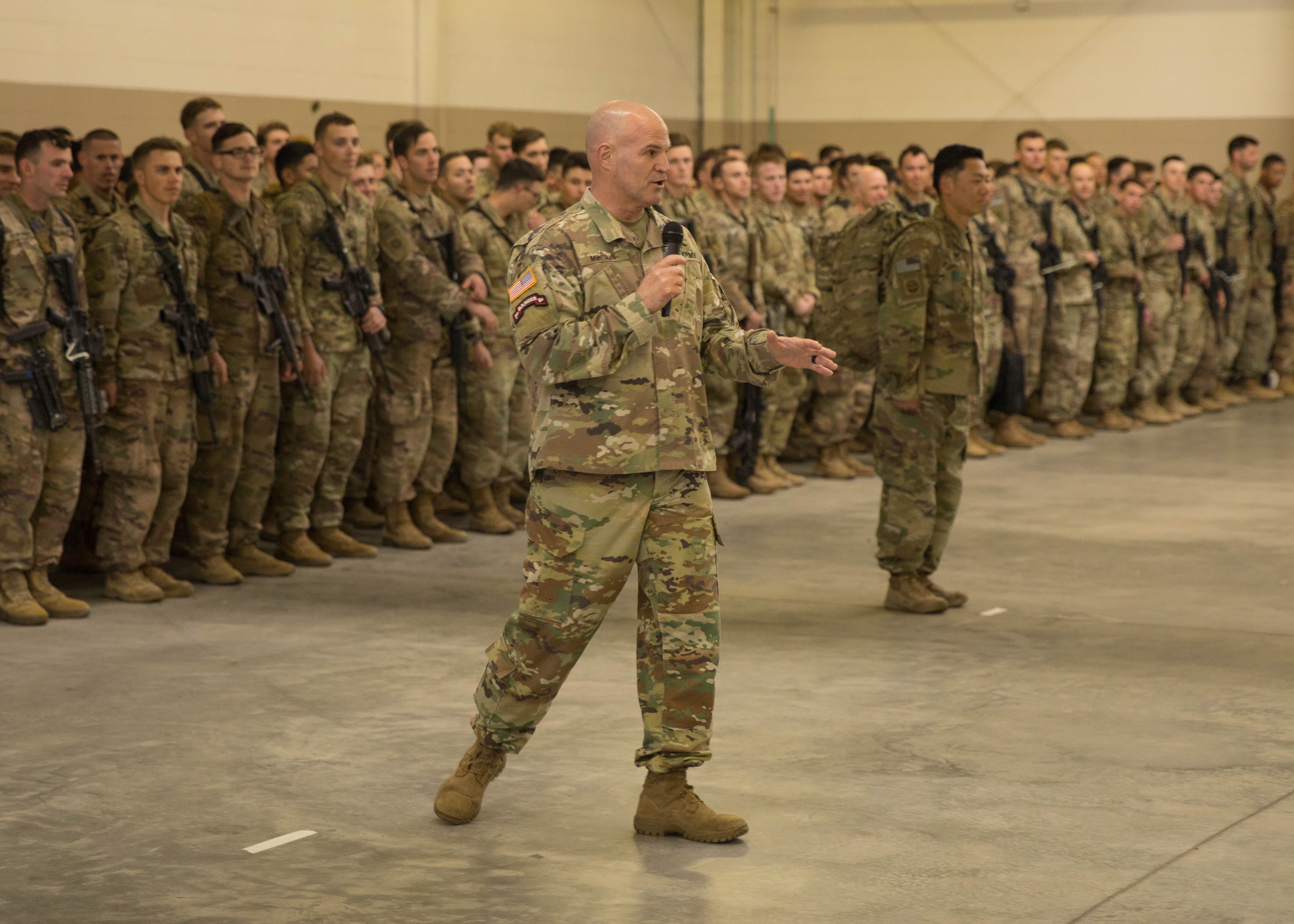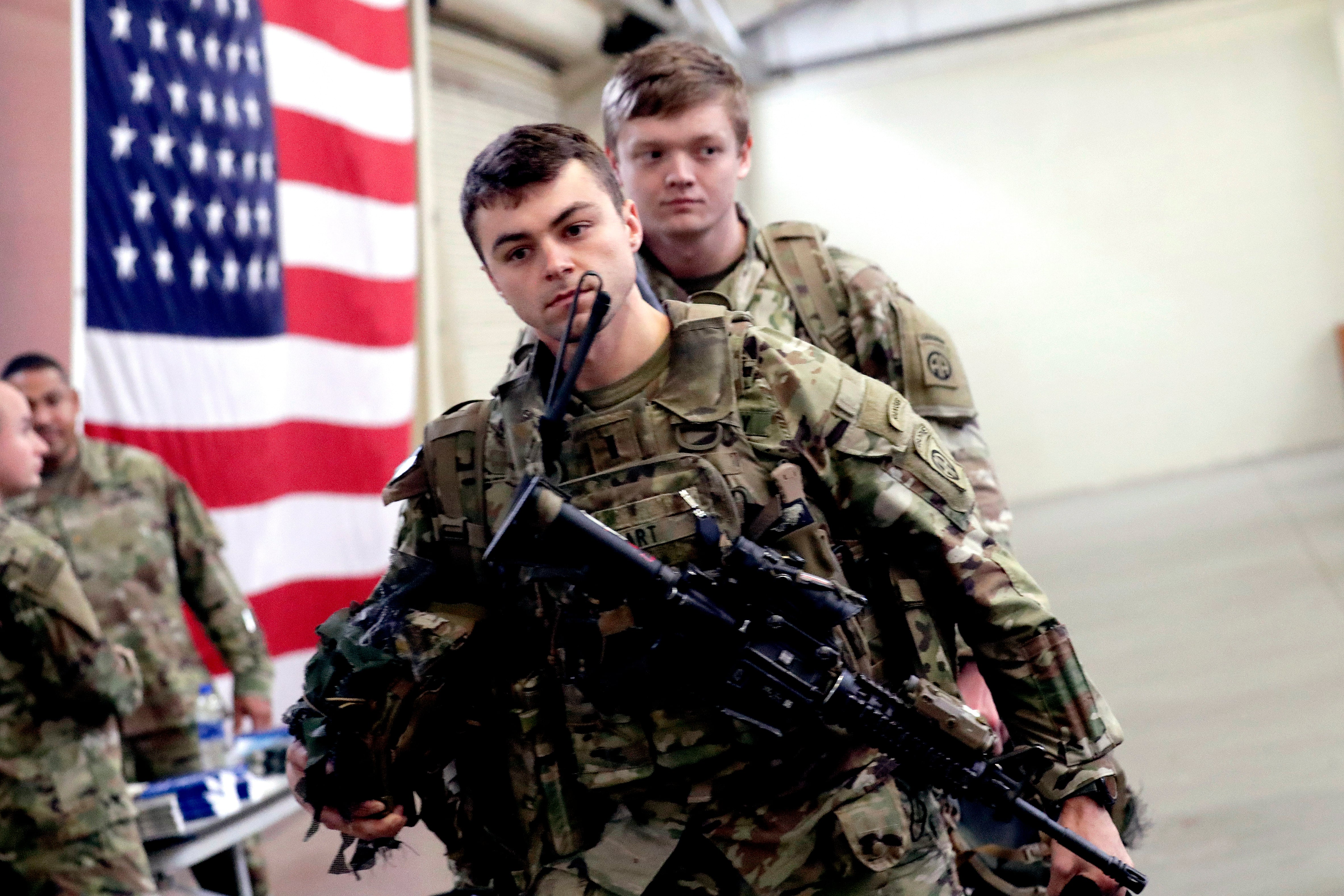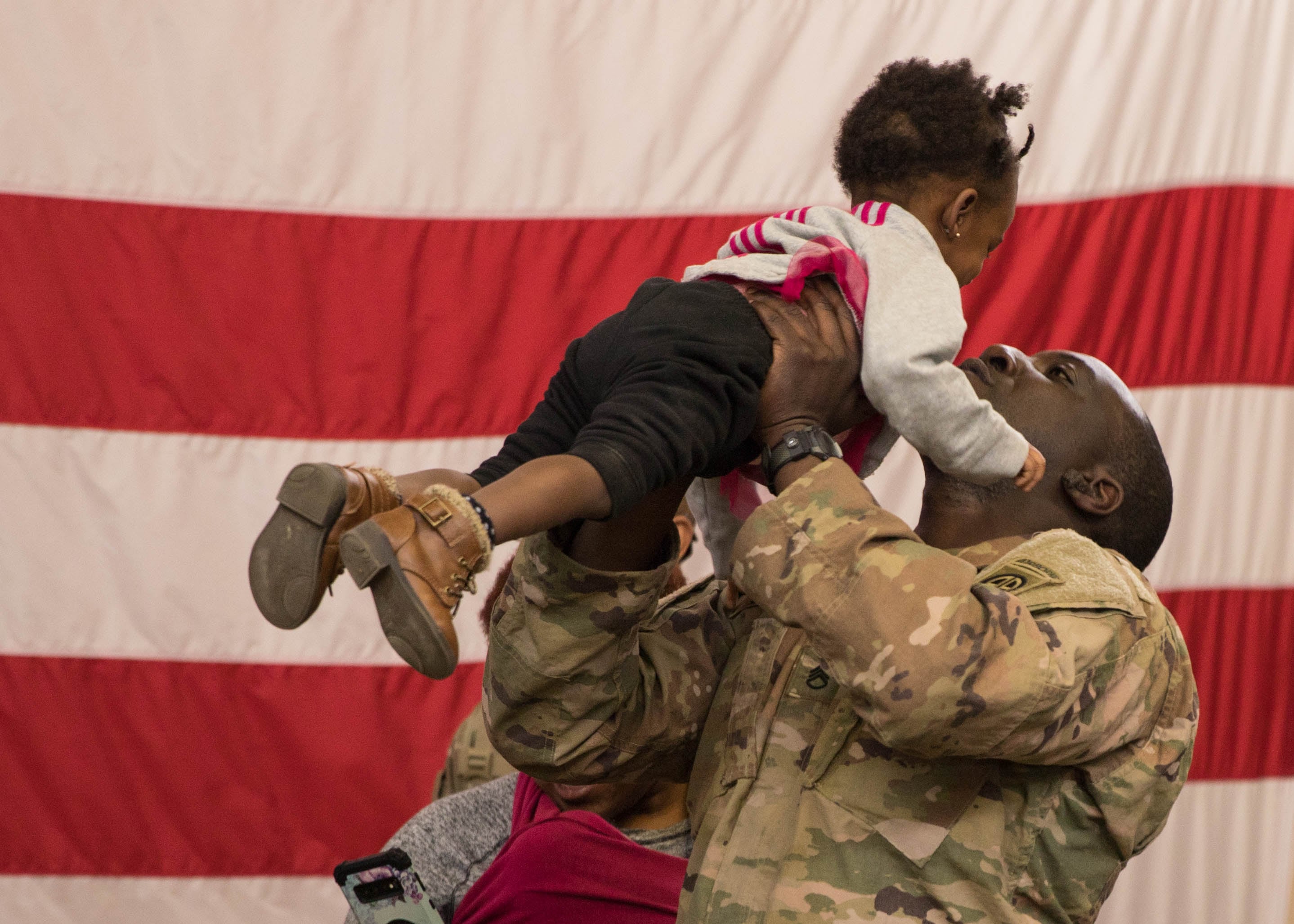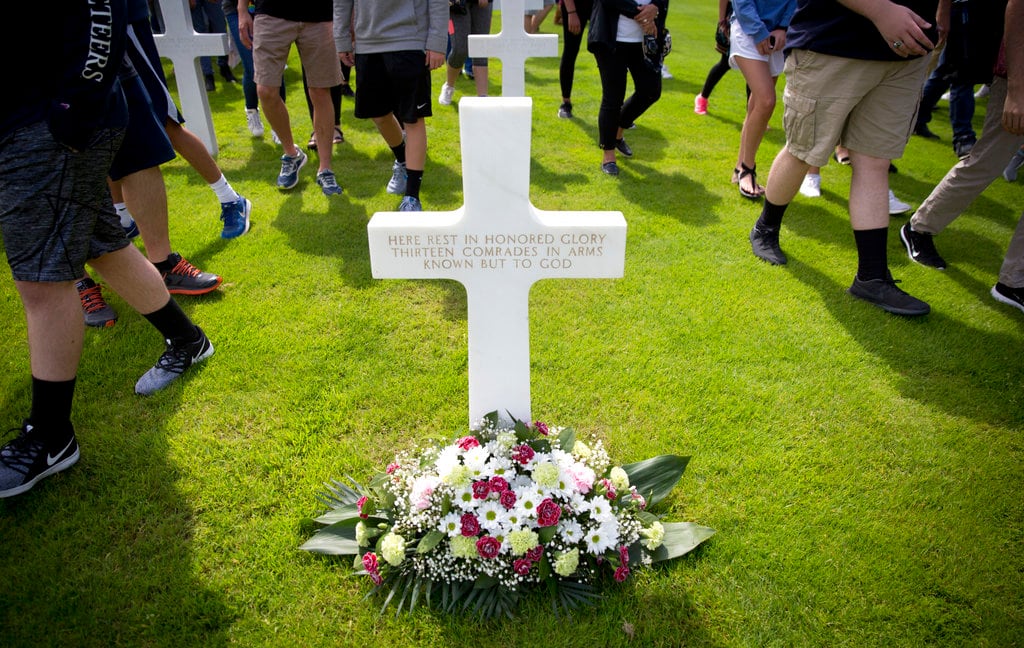Nearly 800 paratroopers from the 82nd Airborne Division returned home to Fort Bragg, North Carolina, on Thursday as the division readies them to deploy once more for a spring training exercise in Europe.
The paratroopers were part of a roughly 3,500-soldier brigade that deployed as part of the Army’s immediate response force in early January — a time when tensions between the United States and Iran reached a fever pitch.
The returning paratroopers were members of the 2nd Battalion, 504th Parachute Infantry Regiment, the 3rd Squadron, 73rd Cavalry Regiment, the 3rd Battalion, 319th Airborne Field Artillery Regiment and various enablers.
The remainder of the 82nd’s 1st Brigade Combat Team remains deployed to the U.S. Central Command region, division officials said.
“We could not be more proud of these Paratroopers and it is an honor to welcome them home,” Maj. Gen. James Mingus, the 82nd’s commanding general, said in a prepared statement. “These great men and women honored the tradition of Paratroopers that came before them by answering their Nation’s call on a moment’s notice.”
Paratroopers were the centerpiece of a rapid response force pushed to Kuwait after an increase in tensions between the United States and Iran that culminated in the killing of Iranian Quds Force commander Gen. Qassem Soleimani by a U.S. airstrike on his vehicle outside Baghdad International Airport. Critics of that strike have called it an assassination of a foreign leader that was not done to prevent an imminent attack against U.S. forces as the Donald Trump administration originally claimed.

The paratroopers had already been deploying to the region by that point, massing at Ali Al Salem Air Base, Kuwait just before New Year’s Eve. Their deployment came in the wake of five U.S. airstrikes that targeted an Iran-backed militia known as Kata’ib Hizbollah — a group U.S. officials blamed for a spate of rocket attacks against Iraqi bases housing coalition troops in late December. The rocket attacks killed an American contractor and wounded several service members.
The paratroopers’ deployment was the “most significant no-notice deployment of combat forces in more than 30 years and a remarkable and historic effort by the logistical nodes on Fort Bragg,” the division said in a press release announcing the soldiers’ return movement.
The first elements of the division were able to muster, draw equipment and take off from Fort Bragg’s Green Ramp facilities within 18 hours.
RELATED

The troops ultimately were not needed as tensions steeply dropped off after an Iranian missile attack hit Al Asad Air Base in western Iraq on Jan. 8, and the White House chose not to escalate further. Although it appeared that no troops were wounded in the Iranian attack, more than 100 U.S. personnel were treated for traumatic brain injuries.
“Task Force White Devil built readiness and strengthened regional partnerships while serving as a deterrence package inside the CENTCOM AOR,” said Lt. Col. Scott McKay, commander of the 2nd Battalion, 504th Parachute Infantry Regiment. “The task force trained on a daily basis throughout the mission to remain ready to respond to any threat.”
The 504th Parachute Infantry Regiment’s returning troops are now preparing to deploy for exercise Swift Response 20, an airborne insertion training event that’s linked to the much larger division-strength exercise Defender Europe 2020 this spring.
Defender Europe 2020 is the largest deployment of U.S.-based forces to Europe for an exercise in more than 25 years, according to U.S. Army Europe. It is intended to increase the U.S. military’s ability to rapidly deploy an entire division and their equipment to European seaports and push them along rail lines and roadways to battlefields in the event of a crisis on the continent.
Kyle Rempfer was an editor and reporter who has covered combat operations, criminal cases, foreign military assistance and training accidents. Before entering journalism, Kyle served in U.S. Air Force Special Tactics and deployed in 2014 to Paktika Province, Afghanistan, and Baghdad, Iraq.





